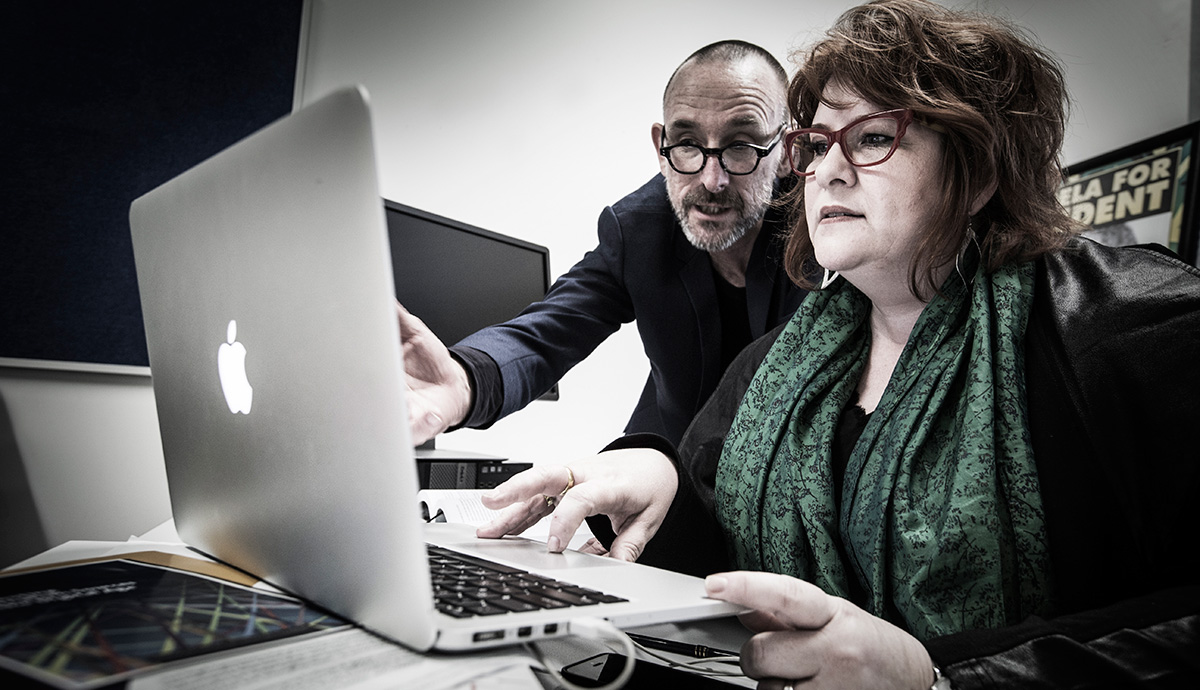November 4, 2015
Protecting journalism sources in a digital age
UOW academics and students collaborate on special UN study, which has just been launched in Paris, London and New York.
Key findings from a UOW supported study for the United Nation’s Educational, Scientific and Cultural Organisation (UNESCO) on the protection of journalism sources in the digital age have been simultaneously launched in Paris, London and New York.
The author and chief investigator was UOW Journalism academic and former World Editors Forum and World Association of Newspapers and News Publishers (WAN-IFRA) Research Fellow, Julie Posetti. The study (produced for WAN-IFRA, under contract to UNESCO) draws on surveys and long form interviews involving nearly 200 international experts from the fields of law, journalism, digital communications, and civil society organisations.
The study, based on research covering 121 UNESCO Member States (including Australia), concluded that between 2007 and 2015 there were noteworthy developments in 69 per cent of the countries examined – mainly with negative impact.
A major extract from the study features in UNESCO’s flagship publication World Trends in Freedom of Expression and Media Development launched as part of events marking the International Day to End Impunity For Crimes Against Journalists.
Ms Posetti who is a Broadcast and Convergent Journalism Lecturer at UOW was assisted in the study by the Head of Digital Pedagogies at UOW, Dr Marcus O’Donnell, along with five Journalism students who worked as interns with Ms Posetti during her Paris-based Research Fellowship. Other academics from Brazil and China collaborated on the project, along with a host of international research assistants.
Ms Posetti recently presented on the early findings from the research on a panel of international experts on source protection and whistleblowing during a meeting at United Nations headquarters in New York.
The student interns who assisted in the study were: Angelique Lu (now a journalist with the BBC), Alice Mathews (now a journalist with the ABC), Jake Evans, Jessica Sparks and Ashleigh Tullis.
“It certainly is a big achievement to have UOW researchers and students leading a major UNESCO study on one of the most pressing contemporary issues regarding freedom of expression,” Ms Posetti said.
Ms Posetti said the expansion of digital communications and monitoring has coincided with increased sensitivity to security issues in many countries in recent years, posing particular challenges to traditional legal protections for journalists’ sources.
“A reporter’s commitment to refuse attempts to compel them to identify their source/s in the analogue past may have provided significant protection for an anonymous source, but in the age of digital reporting, mass surveillance, mandatory data retention, and disclosure by third party intermediaries, this traditional shielding of identity can be penetrated.”
The 13 key recommendations and findings from Protecting Sources of Journalism in the Digital Age were:
1. Eighty four UNESCO Member States out of 121 studied (69 per cent) for this report demonstrated noteworthy developments, mainly with negative impact, concerning journalistic source protection between 2007 and mid-2015
2. The issue of source protection has come to intersect with the issues of mass surveillance, targeted surveillance, data retention, the spill-over effects of anti- terrorism/national security legislation, and the role of third party internet companies known as ‘intermediaries’
3. Legal and regulatory protections for journalists’ sources are increasingly at risk of erosion, restriction and compromise
4. Without substantial strengthening of legal protections and limitations on surveillance and data retention, investigative journalism that relies on confidential sources will be difficult to sustain in the digital era, and reporting in many other cases will encounter inhibitions on the part of potential sources
5. Transparency and accountability regarding both mass and targeted surveillance, and data retention, are critically important if confidential sources are to be able to continue to confidently make contact with journalists
6. Individual states face a need to introduce or update source protection laws
7. It is recommended to define ‘acts of journalism’, as distinct from the role of ‘journalist’, in determining who can benefit from source protection laws
8. To optimise benefits, source protection laws should be strengthened in tandem with legal protections extended to whistle-blowers, who constitute a significant set of confidential journalistic sources
9. Source protection laws need to cover journalistic processes and communications with confidential sources – including telephone calls, social media, and emails – along with published journalism that depends on confidential sources
10. Journalists are increasingly adapting their practice in an effort to partially shield their sources from exposure, but threats to anonymity and encryption undermine these adaptations
11. The financial cost of the digital era source protection threat is very significant (in terms of digital security tools, training, and legal advice), as is its impact on the production and scope of investigative journalism based on confidential sources
12. There is a need to educate journalists and civil society actors in digital safety
13. Journalists, and others who rely on confidential sources to report in the public interest, may need to train their sources in secure methods of contact and information-sharing
More information: The UNESCO book World Trends in Freedom of Expression and Media Development: Special Digital Focus 2015 is . The full study, “Protecting Journalism Sources in the Digital Age”, will be published by UNESCO early in 2016.
Photo shows UNESCO study participants Julie Posetti with Dr Marcus O’Donnell.
